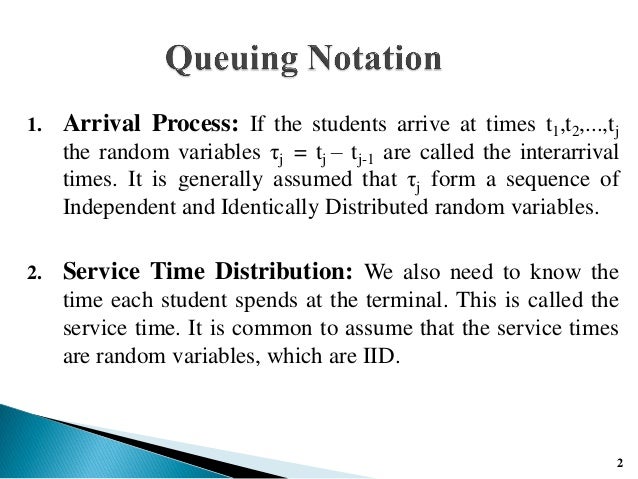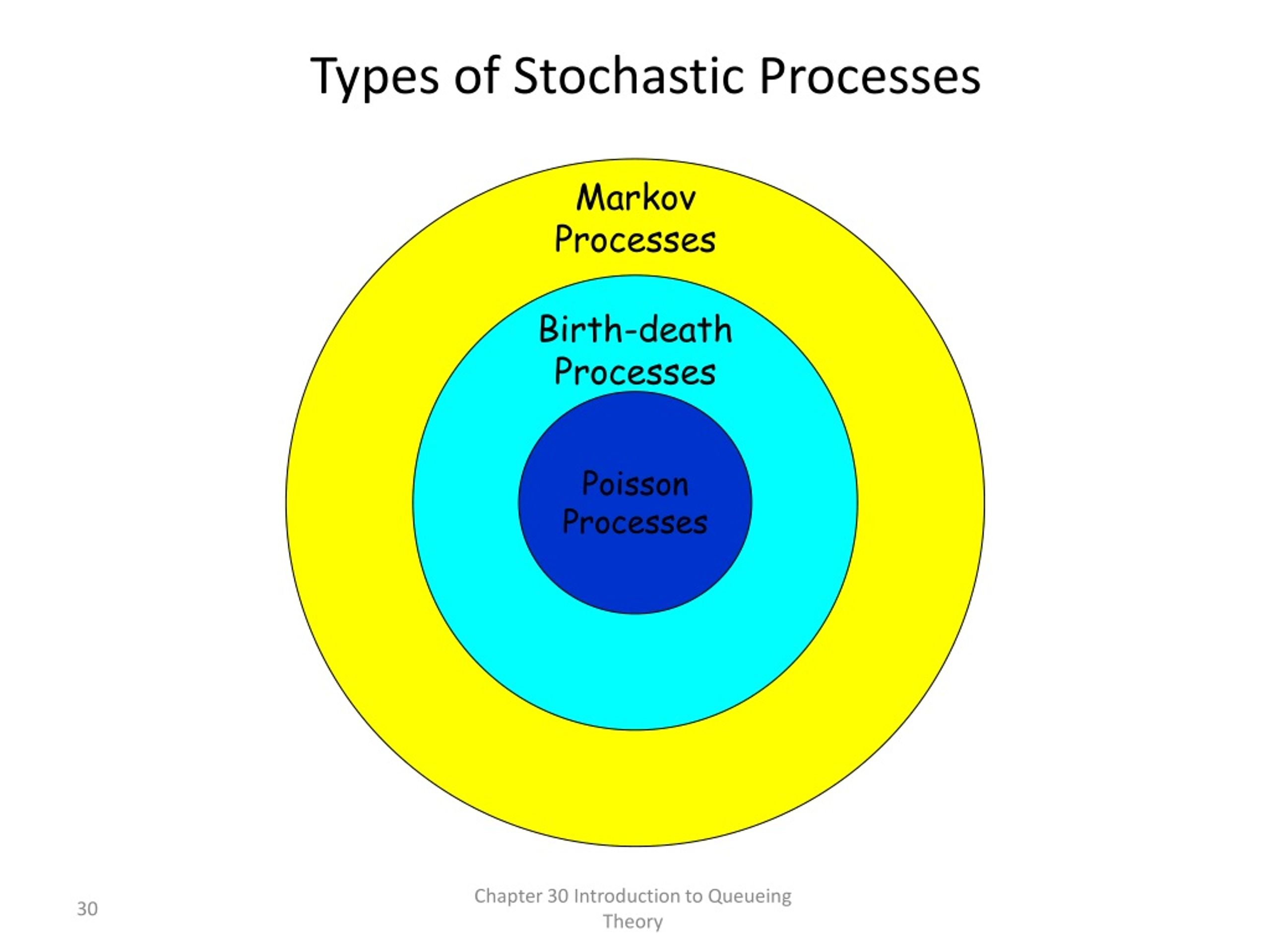Apply the concept of random processes in engineering disciplines. Acquire skills in analyzing queueing models. Understand and characterize phenomenon which evolve with respect to time in a probabilistic manner; TEXTBOOKS: 1. Gross, D., Shortle, J.F, Thompson, J.M and Harris. C.M., ―Fundamentals of Queueing Theory”, Wiley Student 4th Edition. As discussed above, queuing theory is a study of long waiting lines done to estimate queue lengths and waiting time. It uses probabilistic methods to make predictions used in the field of operational research, computer science, telecommunications, traffic engineering etc. Queuing theory was first implemented in the beginning of 20th century to. Queuing discipline refers to the rules of the queue, for example whether it behaves based on a principle of first-in-first-out, last-in-first-out, prioritized, or serve-in-random-order. How did queuing theory start? Queuing theory was first introduced in the early 20 th century by Danish mathematician and engineer Agner Krarup Erlang.

MA8402 Notes Probability And Queuing Theory Regulation 2017 Anna University free download. Probability And Queuing Theory Notes MA8402 pdf free download.
OBJECTIVES: MA8402 Notes Probability And Queuing Theory
To provide necessary basic concepts in probability and random processes for applications such as random signals, linear systems in communication engineering.
To understand the basic concepts of probability, one and two dimensional random variables and to introduce some standard distributions applicable to engineering which can describe real life phenomenon.
To understand the basic concepts of random processes which are widely used in IT fields.
To understand the concept of queueing models and apply in engineering.
To understand the significance of advanced queueing models.
To provide the required mathematical support in real life problems and develop probabilistic models which can be used in several areas of science and engineering.
OUTCOMES: MA8402 Notes Probability And Queuing Theory
Upon successful completion of the course, students should be able to: Understand the fundamental knowledge of the concepts of probability and have knowledge of standard distributions which can describe real life phenomenon. MA8402 Notes Probability And Queuing Theory
Understand the basic concepts of one and two dimensional random variables and apply in engineering applications. Apply the concept of random processes in engineering disciplines. Acquire skills in analyzing queueing models. Understand and characterize phenomenon which evolve with respect to time in a probabilistic manner
TEXTBOOKS: MA8402 Notes Probability And Queuing Theory
1. Gross, D., Shortle, J.F, Thompson, J.M and Harris. C.M., ―Fundamentals of Queueing Theory”, Wiley Student 4th Edition, 2014.
2. Ibe, O.C., ―Fundamentals of Applied Probability and Random Processes”, Elsevier, 1st Indian Reprint, 2007.
REFERENCES : MA8402 Notes Probability And Queuing Theory
1. Hwei Hsu, “Schaum‘s Outline of Theory and Problems of Probability, Random Variables and Random Processes”, Tata McGraw Hill Edition, New Delhi, 2004.
Queuing Theory Formula
2. Taha, H.A., “Operations Research”, 9th Edition, Pearson India Education Services, Delhi, 2016.
3. Trivedi, K.S., “Probability and Statistics with Reliability, Queueing and Computer Science Applications”, 2nd Edition, John Wiley and Sons, 2002.
4. Yates, R.D. and Goodman. D. J., “Probability and Stochastic Processes”, 2nd Edition, Wiley India Pvt. Ltd., Bangalore, 2012. MA8402 Notes Probability And Queuing Theory
| Subject name | Probability And Queuing Theory |
| Short Name | PQT |
| Semester | 4 |
| Subject Code | MA8402 |
| Regulation | 2017 regulation |


Probability Random Processes And Queueing Theory (solutions To Problems)
MA8402 Probability And Queuing Theory NotesClick Here To Download
